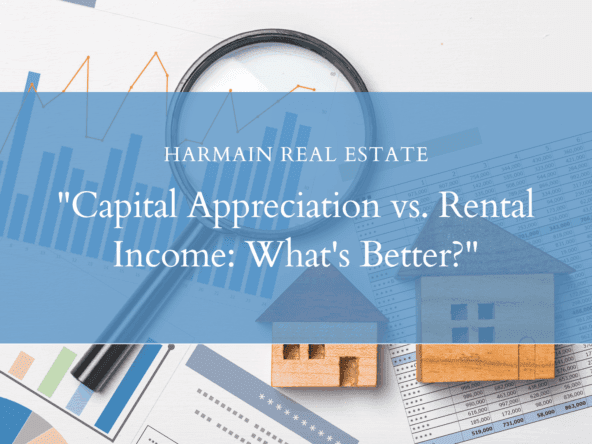Building a Strong Real Estate Brand in 2025
In an industry as dynamic and competitive as real estate, differentiation is no longer a luxury—it’s a necessity. As we step into 2025,the rules of the game are evolving faster than ever, driven by technological innovation, shifting consumer expectations, and a crowded digital landscape. building a recognizable, trusted, and future-ready real estate brand has become one of the most valuable assets for agents, brokers, and firms alike.
But how do you rise above the noise and create a brand that not only stands out but also stands the test of time? In this article, we’ll explore the strategies, tools, and mindset needed to construct a powerful real estate brand in 2025—one that captures attention, builds trust, and drives lasting success in an ever-changing marketplace.
Table of Contents
- Crafting a Unique Identity to Stand Out in a Crowded Market
- Harnessing Technology and Data to Elevate Your Brand Strategy
- Building Trust and Authority Through Authentic Storytelling
- Leveraging Social Media and Digital Platforms for Maximum Impact
- Q&A
- In Summary
Crafting a Unique Identity to Stand Out in a Crowded Market
- Leverage visuals: High-quality images and videos help to convey professionalism and evoke emotions.
- Invest in cohesive branding: Consistent fonts, color palettes, and logo placement across platforms reinforce credibility.
- Deliver unmatched value: Share unique market insights, reports, and tips to establish yourself as a real estate authority.
| Brand Element | Key Impact |
|---|---|
| Logo & Color Palette | Build instant recognition and associations. |
| Client Testimonials | Boost credibility with real-life success stories. |
| Social Media presence | Engage your audience in real-time and drive leads. |
Harnessing Technology and Data to Elevate Your Brand strategy
- Geo-Targeting Ads: Deliver tailored marketing campaigns to hyper-local audiences through precise geolocation insights.
- Virtual reality Tours: Create immersive property experiences that cater to remote buyers, boosting engagement and conversion rates.
- Data Dashboards: Centralize your metrics to monitor campaign performance and adjust tactics in real time.
Utilizing these tools not only improves customer satisfaction but also positions your brand as a tech-savvy, forward-thinking leader in the competitive real estate market. Here’s an example of how tech solutions can transform your strategies:
| Technology | Benefit | Impact |
|---|---|---|
| AI chatbots | 24/7 Lead Interaction | Improves customer responsiveness |
| Predictive Analytics | Trend forecasting | Defines optimal pricing strategies |
| CRM Integration | Tailored Communications | Enhances loyalty and retention |
Building trust and Authority Through Authentic Storytelling
- Video Tours: Share success stories of homes sold, complete with homeowner testimonials.
- Infographics: Highlight key milestones achieved by your company.
- Case Studies: Document unique challenges and solutions for recent clients.
Engaging stories mixed with real data allow potential clients to both feel and trust your expertise. Here’s a speedy comparison of storytelling formats and the benefits they bring:
| Format | audience Impact | Recommended Use |
|---|---|---|
| Video Stories | Emotionally engaging | Showcase personal successes |
| Case Studies | Build credibility | Address challenging transactions |
| Social Media Posts | Short-term attention | Highlight quick wins |
Leveraging Social Media and Digital Platforms for maximum Impact
- Consistency is key: Use a cohesive color palette, fonts, and tone across posts.
- Platform-specific strategies: Highlight luxury listings on Instagram, utilize LinkedIn for professional networking, and connect with younger audiences on TikTok.
- Leverage paid ads: Target demographics in your local area with tailored campaigns.
| Platform | Best Usage | Engagement Tip |
|---|---|---|
| Visual storytelling | regular use of Reels & hashtags | |
| professional updates | Post market insights | |
| Community building | Engage with comments |
Q&A
building a Strong Real Estate Brand in 2025: 5 Essential Q&A
Q1: What makes a real estate brand successful in 2025?
Success in 2025 hinges on authenticity, adaptability, and innovation. A winning real estate brand is more than flashy logos—it’s an identity rooted in trust, transparent communication, and personalized experiences. With tech-savvy buyers and sellers dominating the market, brands need to leverage cutting-edge tools like AI-driven analytics while remaining human-centric in their approach.
Q2: How vital is social media in shaping a real estate brand?
Social media in 2025 is the cornerstone of brand storytelling. Platforms such as TikTok, Instagram, and even emerging micro-community apps allow agents to showcase their expertise, share property tours, and connect emotionally with their audience. A vibrant social media presence can transform mundane listings into compelling narratives, driving both engagement and lead generation.
Q3: How can real estate professionals differentiate themselves in a crowded market?
Differentiation begins with defining a unique value proposition. Whether it’s specializing in enduring housing, offering virtual-first services, or building hyper-local expertise, carving out a distinct niche is critical. Additionally, pairing strong data insights with personalized customer experiences ensures your brand stands out in a sea of competition.
Q4: What role will technology play in shaping real estate brands in 2025?
Technology will redefine the industry by enabling brands to predict market trends, automate processes, and deliver immersive customer experiences. Virtual reality (VR) home tours, AI-driven property recommendations, and blockchain-powered transactions will become standard offerings. Brands embracing technology as a value-add, rather than a gimmick, will earn lasting trust from clients.
Q5: How can real estate brands stay future-ready beyond 2025?
Future-ready brands think beyond transactions by fostering long-term relationships and adapting to societal shifts. A focus on inclusivity, environmental sustainability, and community engagement will resonate with the next generation of buyers and sellers. Remaining curious, open to change, and proactive about addressing industry challenges will ensure your brand thrives well into the future.
In Summary
In the ever-evolving landscape of 2025,building a strong real estate brand is no longer just about transactions—it’s about standing for something bigger. It’s about weaving authenticity into every customer interaction, leveraging technology without losing the human touch, and creating a reputation that inspires trust in a crowded marketplace. The strategies may shift over time, but the core principles remain steadfast: consistency, connection, and care.
As you step forward and shape your brand in this dynamic industry, remember that your success is not only measured by the properties you sell but by the relationships you build and the legacy you leave behind. The future belongs to real estate brands that dare to be creative, innovative, and intentional. So, whether you’re an established mogul or just starting out, this is your moment to build a brand that leaves a lasting impression—one home, one client, one story at a time.




